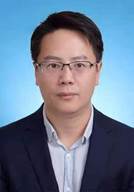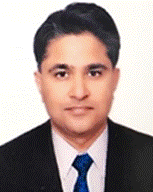一、承辦院系School/Department host:
深圳國(guó)際研究生院 Tsinghua Shenzhen International Graduate School
生物醫(yī)藥與健康工程學(xué)院 Institute of Biopharmaceutics and Health Engineering
二、挑戰(zhàn)主題Theme:
健康中國(guó)戰(zhàn)略面臨的青少年近視篩查、防控及近視發(fā)展預(yù)測(cè)中挑戰(zhàn)及應(yīng)對(duì)
Challenges and countermeasures of global myopia screening, prevention and development predictions

三、導(dǎo)語(yǔ)/背景情況概述Background:
中國(guó)有7億近視患者,3.1%高度近視引發(fā)的病理性近視。病理性近視引起視網(wǎng)膜退行性病變,視力下降及失明。診斷和病變發(fā)展預(yù)測(cè)是病理性近視早期干預(yù)的關(guān)鍵,早發(fā)現(xiàn)才能早干預(yù)。為解決近視度數(shù)增加,且在增加到高度近視后可能發(fā)展成病理性近視的問(wèn)題,設(shè)計(jì)兩個(gè)小課題,1)OK鏡的人工智能輔助設(shè)計(jì);2)病理性近視預(yù)測(cè)。這兩個(gè)問(wèn)題的解決對(duì)預(yù)測(cè)近視發(fā)展及基于OK鏡的早期干預(yù)有重要意義。
China has 700 million myopic people, 3.1% of which develop pathological myopia. Pathological myopia causes degenerative changes to the back of eye and reduction in sight that cannot be corrected by lenses or glasses, and blindness. The diagnosis and prediction of pathological myopia is crucial for early intervention. Here we design two tasks for the students. 1. AI facilitated prescription of “OK” glasses. 2. Prediction of pathological myopia. These two projects will help clinical doctors to predict the development of myopia and accurately prescribe “OK” glasses at early myopic stages.
四、該領(lǐng)域比較關(guān)注的問(wèn)題Our key topics of interest:
病理性高度近視發(fā)生、發(fā)展的因素分析及預(yù)測(cè)。
When and what factors contribute to the development of pathological myopia?
如何根據(jù)眼科檢測(cè)指標(biāo)設(shè)計(jì)OK鏡。
What are the critical factors for the precise prescription of “OK” glasses?
五、主講老師Hack Leader

秦培武,清華伯克利深圳學(xué)院生物醫(yī)學(xué)助理教授,02年本科畢業(yè)于東北農(nóng)業(yè)大學(xué)生物工程系,05年中國(guó)科學(xué)院遺傳發(fā)育所獲分子發(fā)育碩士,08年美國(guó)東北大學(xué)物理化學(xué)碩士,2013 年畢業(yè)于美國(guó)密蘇里大學(xué)哥倫比亞分校,獲得生物化學(xué)博士學(xué)位和統(tǒng)計(jì)碩士學(xué)位。2013-2018加州大學(xué)伯克利分校物理系博士后,期間的主要研究方向?yàn)榘l(fā)展和利用超分辨率顯微鏡和晶格狀光片照明顯微鏡來(lái)研究染色體的組織、動(dòng)態(tài)和功能。目前主要從事生物光學(xué)成像,醫(yī)學(xué)圖像處理和生物光學(xué)成像。
Peiwu Qin received a B.Sc. degree in biotechnology from Northeastern Agricultural University, Harbin, China in 2002; a M.Sc. degree in developmental biology from the Chinese Academy of Sciences, Beijing, China in 2005; a M.Sc. degree in physical chemistry from Northeastern University, Boston, MA, USA in 2008; a M.Sc. degree in statistics from the University of Missouri, Columbia, MO, USA in 2013; and a Ph.D. degree in biochemistry from the University of Missouri in 2013. He has been a Post-Doctoral Fellow with the Department of Physics, University of California at Berkeley, USA, from 2013 to 2018. He is currently an Assistant Professor with the Tsinghua–UC Berkeley Shenzhen Institute, Shenzhen, China. His research interests include optical imaging method development, image processing and bio-imaging.

董宇涵,清華大學(xué)深圳國(guó)際研究生院副教授、博導(dǎo)。2002和2005年獲得清華大學(xué)電子工程系工學(xué)學(xué)士學(xué)位和碩士學(xué)位;2009年獲得美國(guó)北卡羅萊納州立大學(xué)電氣與計(jì)算機(jī)工程系博士學(xué)位。2010年1月加入清華大學(xué)深圳研究生院(現(xiàn)為清華大學(xué)深圳國(guó)際研究生院)。研究方向包括無(wú)線通信與網(wǎng)絡(luò)、機(jī)器學(xué)習(xí)與優(yōu)化、智能傳感器網(wǎng)絡(luò)及應(yīng)用、人工智能與醫(yī)療、智能交通車路協(xié)同。
Dr. Yuhan Dong received B.S. and M.S. degrees in electronic engineering from Tsinghua University, Beijing, China, and a Ph.D. degree in electrical engineering from North Carolina State University, Raleigh, NC, USA in 2002, 2005, and 2009 respectively. Since January 2010, he has been with the Tsinghua Shenzhen Graduate School (currently known as the Tsinghua Shenzhen International Graduate School), Tsinghua University, where he is an Associate Professor and Ph.D. advisor. His research interests include wireless communications and networking, machine learning and optimization, artificial intelligence and healthcare.
六、導(dǎo)師簡(jiǎn)介Mentors

張凱博士分別于1999年和2004年獲得清華大學(xué)工學(xué)學(xué)士和工學(xué)博士學(xué)位。其研究方向包括智能交通系統(tǒng)、智能車輛、新能源車輛、智能傳感和無(wú)線光通信。2004年至2014年任日本三菱重工智能交通中心研究員和資深研究員。目前受聘清華大學(xué)深圳國(guó)際研究生院副教授。
Dr. Kai Zhang received B.E. and Ph.D. degrees from Tsinghua University, China, in 1999 and 2004 respectively. His research interests include intelligent transportation systems, intelligent vehicles, new energy vehicles, intelligent sensory, and wireless optical communication. He worked as a researcher, senior researcher with ITS Center, Mitsubishi Heavy Industries, Japan, from 2004 to 2014. He is presently an Associate Professor of the Tsinghua Shenzhen International Graduate School.

Peter E. Lobie教授,新西蘭皇家科學(xué)院院士,研究方向?yàn)榘┌Y靶向治療,在腫瘤基礎(chǔ)研究、新穎療法開發(fā)以及癌癥生物標(biāo)記物發(fā)現(xiàn)方面擁有豐富經(jīng)驗(yàn),尤其在腫瘤相關(guān)生長(zhǎng)因子的致癌機(jī)制中做出了開創(chuàng)性突破。本科畢業(yè)于澳大利亞昆士蘭大學(xué),獲醫(yī)學(xué)科學(xué)及內(nèi)外全科醫(yī)雙學(xué)士學(xué)位,在校期間被授予大學(xué)最高杰出獎(jiǎng)?wù)聵s譽(yù)。博士畢業(yè)于瑞典卡羅林斯卡醫(yī)學(xué)院,并在畢業(yè)后留校從事博士后工作。自2004年始,他在新西蘭奧克蘭大學(xué)醫(yī)學(xué)院里金斯研究所擔(dān)任教授、副所長(zhǎng),是新西蘭乳腺癌基金會(huì)首席科學(xué)家和首席籌款人。此外,Peter教授曾任新加坡國(guó)立大學(xué)癌癥科學(xué)研究所首席研究員及研究生委員會(huì)主席,新加坡國(guó)立大學(xué)藥理系終身教授,現(xiàn)被聘任為清華大學(xué)清華伯克利深圳學(xué)院,清華大學(xué)精準(zhǔn)醫(yī)學(xué)與公共健康中心主任,核心科學(xué)家。
Peter Lobie obtained a B.Med.Sci. (Distinction) and MBBS (Medicine First Class Honours) from the University of Queensland in Australia. He was awarded the highest accolade from the University in the form of a University Medal. His postdoctoral work was undertaken at the Karolinska Institute in Sweden where he also obtained his doctoral degree (PhD). He has consecutively held faculty positions in Sweden, Singapore and New Zealand. He was also New Zealand’s first chair of Breast Cancer funded by the Breast Cancer Research Trust. He was Professor and Senior Principal Investigator at the Cancer Science Institute of Singapore before being appointed co-Director of the Centre for Precision Medicine and Healthcare at the Tsinghua-Berkeley Shenzhen Institute. Recent emphasis in his laboratory has focused on the capacity of specific secreted proteins to initiate or progress cancer and thereby evaluation of individual molecules for their potential therapeutic application.

Vijay Pandey博士是清華大學(xué)深圳國(guó)際研究生院生物制藥與健康工程研究所的助理教授。他在新西蘭奧克蘭大學(xué)分子醫(yī)學(xué)系取得了博士學(xué)位,并在新加坡國(guó)立大學(xué)新加坡癌癥科學(xué)研究所從事博士后研究。Vijay教授一直專注于腫瘤研究和惡性腫瘤的精準(zhǔn)治療,對(duì)分子靶向治療藥物研究、腫瘤代謝等方面的研究工作有較為深刻的理解,主要研究興趣是理解分子標(biāo)記基礎(chǔ)及其在人類惡性腫瘤發(fā)展中的意義。
Dr. Vijay Pandey is Assistant Professor at the Tsinghua-Berkeley Shenzhen Institute (TBSI), Institute of Biopharmaceutical and Health Engineering, Tsinghua Shenzhen International Graduate School, China. Prior to his current position, his postdoctoral work was undertaken at the Cancer Science Institute of Singapore, National University of Singapore. Dr. Vijay obtained his doctoral degree (Ph.D.) in Molecular Medicine from the University of Auckland, New Zealand. His primary research interest is directed toward understanding the basis of molecular signatures and their significance in the development of human malignancies.